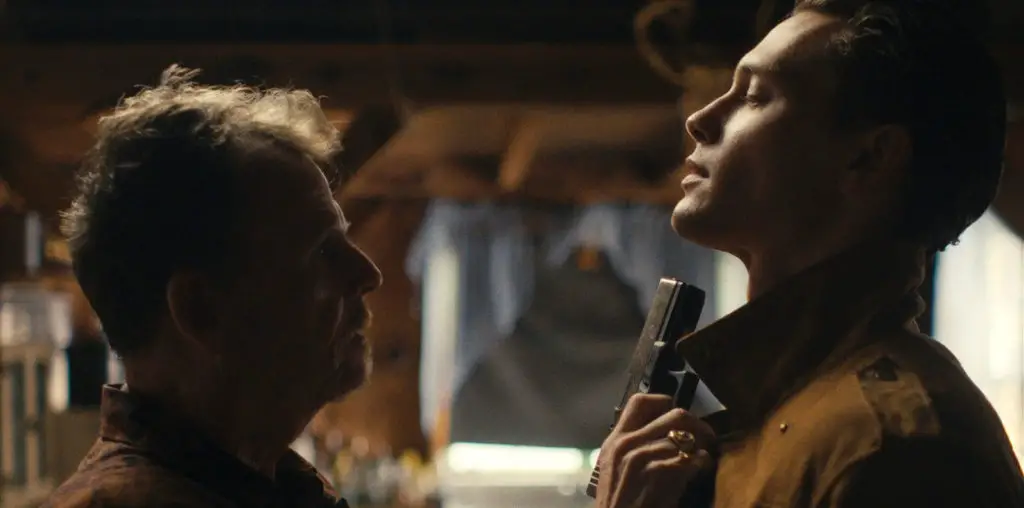
The thing I’ve grown to dislike about the modern zombie film genre is how it’s latched onto the cozy catastrophe scenario presented in the original “Dawn of the Dead” without realizing that the only reason George Romero put his survivors in a mall full of luxury items was to comment on the mindlessness of rampant consumerism and equate shopping with being little more than the living dead. Not to have the main characters indulge in every single one of their violent anti-social impulses and materialistic whims like it’s a rap video.
Yet, nearly all of the modern zombie films with the exception of “28 Days Later”, which isn’t even a proper flesh eater flick, treat the zombie apocalypse as a great adventure and focus on the good, clean consequence-free “fun” of running around blowing off the heads of revived fellow human beings, rather than show the more likely scenario which would involve being shot by a seventeen year old soldier and tossed onto a pile of burning bodies by the US Army.
Sure, these movies can be sort of cool for what they are, but they’re also devoid of social commentary or subtext and I can’t help but think that it would be nice if the filmmakers tried to sneak in an opinion or two about the ills of mankind every now and then.
“Alice Jacobs is Dead” is refreshing because it uses the idea of zombies to address the serious topic of death and dying. For over a hundred years now human beings have become more and more sensitive about this subject since they rarely have to face it until they’re forty, sometimes sixty, years old. Yet nothing is a more natural and everyday phenomenon than death. Our ancestors knew that well since they used to bury a family members or two every couple of years. Modern medicine has changed this, for the better may I add, but like all improvements it’s also made us weaker in some ways.
A few years after a zombie epidemic, the world is now walking corpse free thanks to a serum created by Doctor Ben Jacobs that prevents the dead from coming back to life by halting the infection that causes zombification. The man is a global hero. Everyone on Earth was affected by the crisis to some extent, seeing their loved ones die and come back. Doctor Jacobs himself lost his wife Alice during the original infection.
However, we’re clued in early that things are not as they seem because when the good Doctor returns home from a day of work at the lab, his wife greets him, seemingly alive and in good health. They share the banter of those who are both deep in love and have been together for a long time. It’s a nice little moment of sweetness between actors Paul Lazar and Adrienne Barbeau, and it almost makes the audience overlook that there’s something seriously wrong here. Alice can’t eat or drink. She bleeds from the mouth when she brushes her teeth. She’s sick, maybe dying, maybe worse than dying.
Zombie film or no, I found the ending very sad and the film left me with a bit of a lump in my throat. Oh sure, it goes for the gusto and gut chewing fans will not be disappointed, but what I took out of this is how poor Doctor Jacobs just couldn’t accept that Alice was indeed dead and that his inability to face the natural end of her life had brought him and his wife much suffering.
If someone had told me during the “Cannibal Women in the Avocado Jungle of Death” years that I’d be watching a movie starring Adrienne Barbeau that would touch my heart, even a little bit, I might have mercilessly taunted this person into therapy. Yet here I am sitting at my computer, happy that this has come to pass.
“Alice Jacobs is Dead” earns the emotions that it wrings from you. It’s a genuine film, one that has a few ideas in its brain and something to say, one that is all too often seldom seen.
It played at the Small Gauge Trauma presentation for the Fantasia Film Festival to a rapt and attentive audience. There were a few fanboy catcalls, but they were half-hearted and muted by how effective the film was. That alone tells you everything you need to know.
